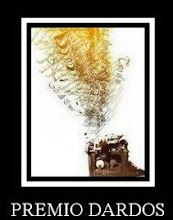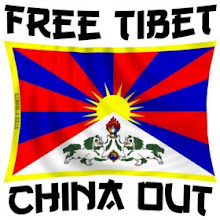
Senator Hillary Rodham Clinton scored a victory over Senator Barack Obama on Tuesday in the Pennsylvania primary, giving her candidacy a boost as she struggles to raise money and persuade party leaders to let the Democratic nomination fight go on.
The Pennsylvania race turned into a mammoth political battle in recent days, with both candidates pouring millions of dollars into television advertising — much of it negative — and criticizing each other relentlessly on the campaign trail. Mrs. Clinton questioned Mr. Obama’s electability and attacked him for saying that struggling Americans were “bitter,” while Mr. Obama tried to shave her lead in opinion polls.
Mrs. Clinton faces major challenges going forward: her campaign is essentially out of money, with unpaid bills piling up, and she faces growing frustration among some Democratic officials who would prefer her to end her campaign in recognition of Mr. Obama’s lead in the overall popular vote of the primaries and caucuses so far, as well as his continuing edge toward amassing the 2,025 delegates needed to secure the nomination.
With nearly 90 percent of the electoral precincts reporting, Mrs. Clinton had 55 percent of the vote to Mr. Obama’s 45 percent.
Mrs. Clinton’s victory was propelled by her strong performance among women, older voters and less affluent and less educated voters; among white union members with no college education, she won almost three-quarters of the vote, polling showed.
Speaking to supporters in Philadelphia on Tuesday night, Mrs. Clinton emphasized that she had triumphed came despite trailing Mr. Obama financially. “He broke every spending record in this state trying to knock us out of this race,” she said. “Well, the people of Pennsylvania had other ideas.”
But she quickly put out a call for supporters to donate to her campaign, noting that “we can only keep winning if we can keep competing with an opponent who outspends us so massively.” She urged viewers to visit her Web site and “show your support.”
Amid chants of “yes she can” — a riposte to Mr. Obama’s motto, “yes we can” — Mrs. Clinton described herself as “a president who is ready to lead on day one. That means ready to take charge as commander in chief and make this economy work for middle class families, and I thank you, I thank you Pennsylvania, for deciding I can be that president.”
Mr. Obama congratulated his opponent at a Tuesday night rally in Evansville, Ind. But he also implicitly chided Mrs. Clinton for the negative tone of her attacks over the past week — and, tacitly, acknowledged his own missteps.
“It’s easy to get caught up in the distractions and the silliness and the tit-for-tat that consumes our politics, the bickering that none of us are entirely immune to,” he said. “That trivializes the profound issues — two wars, an economy in recession, a planet in peril.”
He added that Americans “believe that the challenges we face are bigger than the smallness of our politics.”
Looking to capitalize on Mrs. Clinton’s performance in Pennsylvania, her campaign spent Tuesday planning a fresh fund-raising drive, while other aides mapped out political strategy and staff movement to the next major primaries, Indiana and North Carolina on May 6.
Yet with Mrs. Clinton raising $21 million in March compared with Mr. Obama’s $42 million, her advisers said they realized they had tough challenges ahead. Chief among them, besides paying bills and financing new advertising, was persuading impatient Democratic superdelegates — party leaders and elected officials — to remain neutral in the contest and let the remaining primaries play out through early June.
The Pennsylvania Democrats who cast their ballots in Tuesday’s primary did so with the economy weighing heavily on their minds, according to surveys of voters leaving polling places. Those surveys showed that more than half the voters questioned believe that the worsening state of the American economy is the most important issue confronting the country, with about 90 percent saying the United States has already slipped into a recession.
Half of those polled also said that they were looking for a candidate who could bring about change, which has been the main theme of Mr. Obama’s campaign. Mr. Obama leads in delegates, but has consistently trailed Mrs. Clinton in polls taken in Pennsylvania, though the gap had been closing in recent daysAbout one-quarter of those who participated in the exit polling, conducted by Edison/Mitofsky for five television networks and The Associated Press, endorsed the idea that experience, which Mrs. Clinton has emphasized in her campaign, is the most important quality to be sought in a candidate. For the polling, the margin of sampling error in the sample of 40 precincts across the state was plus or minus four percentage points.
Both candidates performed strongly among the same constituencies that have supported them in other primary states.
Mr. Obama was backed overwhelmingly by black voters and also scored well among voters younger than 45 and college graduates, the results show. Geographically, he performed strongest in Philadelphia and its suburbs, which has the largest concentration of population in Pennsylvania, with Mrs. Clinton winning the majority of the vote in the rest of the state.
Trailing Mr. Obama over all in both the national popular vote and in the competition for delegates, Mrs. Clinton’s advisers said Tuesday that they were girding for a tough spring. Two associates of Mrs. Clinton said that if she had lost Pennsylvania, she would most likely end her campaign, recognizing that any hope of overtaking Mr. Obama was futile.
And next up are the Indiana and North Carolina primaries — with Indiana posing another make-or-break challenge for Mrs. Clinton, according to several of her advisers, who said that they would urge her to quit the race if she lost that state. Mrs. Clinton, former President Bill Clinton and their allies have campaigned frequently in Indiana in recent weeks, and she has some important endorsements, including support from Senator Evan Bayh, the state’s former governor.
“She has to win Pennsylvania and Indiana — pretty much everyone in the campaign agrees on that,” said one senior Clinton adviser, who spoke on the condition of anonymity to discuss the campaign’s electoral expectations.
But Clinton advisers emphasized that neither they nor Mrs. Clinton were feeling anything close to defeatist — rather, they said, they believed that a Pennsylvania win would help her build momentum in Indiana and other states in the region with coming contests, like West Virginia and Kentucky in May.
Mrs. Clinton is particularly counting on winning sizable margins of victory in the popular vote in future contests, in hopes of edging closer and perhaps overtaking Mr. Obama on that score.
More difficult would be amassing enough delegates to overcome Mr. Obama’s lead on that front — he now has about 150 more delegates over all. His advisers say that in the coming days, they also plan to roll out additional Obama endorsements from superdelegates, the party leaders and elected officials who have an automatic vote in deciding the nomination and the discretion to choose a candidate.
Clinton advisers said they were already picking states, cities and towns to dispatch staff members and volunteers from Pennsylvania, and budgeting for television advertising. They are also planning a busy travel schedule for the Clintons, their daughter, Chelsea, and an army of surrogates; they are expected to focus heavily on Indiana, and to a lesser extent in North Carolina, where Mr. Obama is widely seen as strongly positioned.
A greater concern in the shorter term for Mrs. Clinton is fundraising: She raised $21 million in March, compared with Mr. Obama’s $42 million, and her campaign faces a cash squeeze as unpaid bills mount and she spends more money than she is taking in, according to new campaign finance filings.
Mrs. Clinton currently has $10.3 million in outstanding primary debts but only $9.5 million available to cover them, leaving an $800,000 shortfall at the end of March. In February, the Clinton campaign had unpaid bills of $8.7 million and $11.7 million in cash.
By comparison, Mr. Obama had $43 million in cash for the coming primaries and a campaign debt of less than $660,000 at the end of March. Mr. Obama is spending 75 cents for every dollar he is taking in; Mrs. Clinton is spending $1.10.
The New York Times
http://www.nytimes.com/2008/04/23/us/politics/22cnd-campaign.html?pagewanted=1&_r=1&hp


























.jpg)
























































































No hay comentarios:
Publicar un comentario